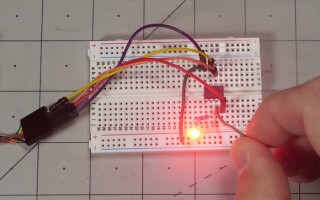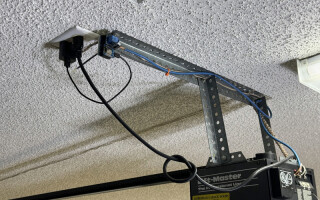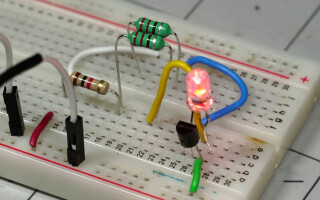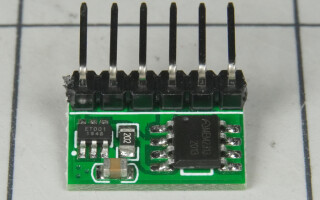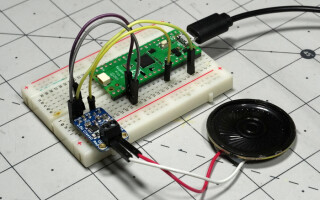Jeremy Cook Consulting
ATtiny85 Capacitive Touch Sensing (Sans External Resistors) - Blog
June 04, 2024The ATtiny series of chips–specifically the ATtiny25, ATtiny45, and ATtiny85–are incredible microcontrollers, capable of extremely low-power operation and control via just eight pins. As I will describe here, you can even implement capacitive touch sensing on these chips’ ADC pins without any external components whatsoever.
Tasmota Breathes IoT Life Into Decades-Old Garage Door Opener - Blog
December 29, 2023My house has a perfectly serviceable “Lift-Master” garage door opener, installed decades before I moved in. Before, in fact, “IoT” was even a term (or practically even “I”) as its manufacturing date reads as 02/94. Nonetheless, this device’s hardwire interface–a set of dry contacts–is refreshingly easy to modernize with the addition of an IoT-controlled relay and Tasmota.
Debug & Test
Make a Joule Thief: Three Inductor Options - Blog
March 24, 2023Recently I’ve been considering how to run an LED for a really, really long time on a CR02032 battery, and eventually (re)stumbled upon the idea of a joule thief. The video below does a good job outlining how this circuit works.
Raspberry Pi Pico CircuitPython MIDI Interface - Blog
February 13, 2023In this article, I’ll first outline the basics of using MIDI with CircuitPython on the Pico for direct interface with a computer. I’ll then show how a Pi 4 (or 3/2) can be used as a host to pipe signals to a keyboard or other device.
Raspberry Pi Pico Turns Itself Off for Power Savings - Blog
January 24, 2023While some microcontrollers use a tiny amount of power in shutdown mode–and even while running in some cases–e.g. the ATtiny series–others are more demanding. This can be especially true for dev boards with their additional overhead, and/or if you’re using sensors that never quite turn off power-wise.
Simple MP3 Audio Playback With Raspberry Pi Pico - Blog
December 12, 2022The RP2040, with a processing speed of 133 MHz, is capable of decoding MP3 files, and the Pico RP2040 dev board includes 2 MB of Flash–enough to store a significant amount of compressed audio. At a list price of $4, the Pico therefore makes an incredible and cost-effective platform for embedded audio playback.


